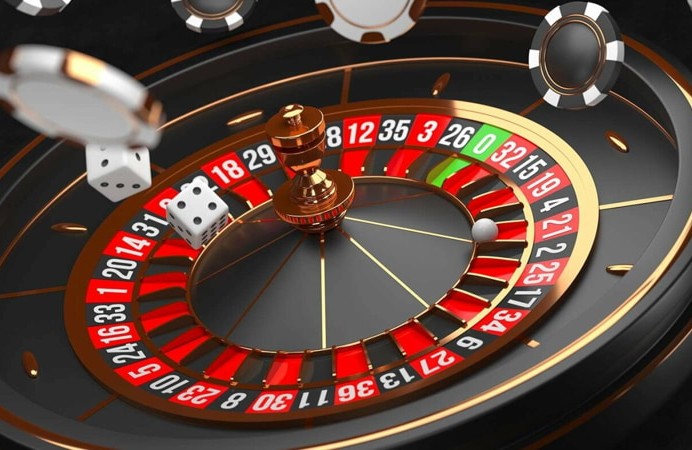The Expectation of Being Owed
Have you ever felt, after a streak of losses at a casino, that you’re somehow “due” for a big win? This feeling of entitlement – that the casino “owes” you winnings – is surprisingly common among gamblers. At platforms like NineCasino, players often harbor this subconscious belief, which significantly influences their gaming behavior. But why does this mindset persist, despite the inherently random nature of gambling?
In this article, we’ll examine the psychological underpinnings of why players develop such beliefs, focusing on cognitive biases, emotional factors, and the specific mechanisms casinos employ that reinforce this mentality.
Understanding the Psychology of Being Owed
Gambler’s Fallacy
One of the main reasons players feel a casino owes them winnings is the gambler’s fallacy. This cognitive bias leads individuals to believe that future outcomes are influenced by past events, expecting a win after a series of losses.
Sunk Cost Fallacy
Another cognitive bias contributing to this belief is the sunk cost fallacy. Players think the money they’ve already lost increases their chances of future wins, feeling entitled to compensation for their investment.
Emotional Investment and Gambling
Attachment to Investment
Players become emotionally invested in the money and time spent gambling, creating a psychological sense of entitlement. This attachment transforms losses into personal grievances against the casino.
Expectation of Reciprocity
Emotionally, players view their continued patronage as deserving of rewards. They believe the casino should recognize their loyalty and return it through winnings.
Casino Design and Player Expectations
Illusion of Control
Casinos deliberately design games to give players an illusion of control. Features like choosing numbers, pressing buttons, or deciding when to spin create a false sense of influence over random outcomes.
Reward Mechanics and Reinforcement
Casinos implement strategic reward systems that intermittently reinforce player expectations. Occasional small wins sustain hope and foster the belief that a significant payout is “owed.”
Expert Perspectives on Casino Expectations
Dr. Andreas Konstantinou, Behavioral Psychologist
“The feeling of being owed by the casino stems from human tendencies toward fairness and justice. Players inherently believe that the universe balances out, thus expecting compensation after losses.”
Elena Karagiannis, Casino Analyst
“We notice that players often perceive their continued gameplay as an investment. Recognizing and managing these expectations through responsible gaming practices is vital.”
Societal and Cultural Influences
Fairness Principle
Society instills a strong sense of fairness, influencing players to believe losses must be balanced by equivalent wins. This cultural belief reinforces the idea of being owed by casinos.
Social Narratives and Gambling Myths
Narratives around gambling often include tales of eventual big wins after prolonged losses, fueling the expectation that patience and persistence will eventually pay off.
Cognitive Biases and Casino Play
Confirmation Bias
Players tend to remember wins and overlook losses, reinforcing their belief that the casino owes them more frequent and significant rewards.
Hindsight Bias
After losing, players convince themselves they should have won or predicted outcomes, intensifying feelings of being unfairly treated by the casino.
Personal Experiences: Players Speak Out
Maria, 37, Athens
“When I lose repeatedly, I feel the casino owes me a big win. It’s irrational, but emotionally it feels justified because I’ve invested so much time and money.”
Giorgos, 45, Patras
“After a string of losses, I found myself angry, feeling the casino should reward me for my loyalty. Logically I knew better, but emotionally, it felt different.”
The Psychological Impact of Losses
Loss Aversion
Humans fear losses more than they value gains. This aversion intensifies the emotional response to losing, enhancing the perception that the casino owes restitution.
Regret and Frustration
Feelings of regret and frustration after losses often translate into anger toward the casino, strengthening the belief in being owed a significant win.
Strategies for Managing Unrealistic Expectations
Education and Awareness
Increasing awareness about cognitive biases and randomness in gambling can help players maintain realistic expectations and reduce the belief that casinos owe them winnings.
Responsible Gaming Practices
Casinos promote responsible gaming practices, including clear information about odds, responsible gaming tools, and supportive resources for players struggling with unrealistic expectations.
Ethical Responsibilities of Casinos
Transparency in Game Mechanics
Casinos have an ethical obligation to transparently communicate the randomness and mechanics of their games, ensuring players understand that outcomes are independent and unbiased.
Implementing Support Systems
Platforms must offer adequate support systems to assist players in managing emotional responses and cognitive biases, promoting healthier gaming habits.
Conclusion: Navigating Expectations with Awareness
Understanding why players often feel casinos owe them winnings requires delving into deep psychological, emotional, and societal factors. Casinos recognize these dynamics and actively work toward providing transparent, responsible, and supportive environments.
By becoming aware of cognitive biases, emotional attachments, and societal influences, players can manage expectations more realistically, enjoying gambling as entertainment without falling prey to the illusion of entitlement.

